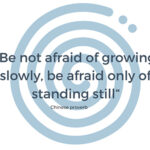| November 2021 |
WHEN DID RESUME WRITING BECOME SO COMPLICATED?

The role of Applicant Tracking Systems
WRITTEN BY: Michelle White
We are often asked these questions:
Why are there professional resume writers? Is the whole job application process overrated? Why can’t I send my one Resume to all the jobs I am interested in applying for? I obviously fit the job description, why am I never called for an interview?
Well, there are a few complications.
One is that it is difficult to view your skills and experience with an independent eye. Showcasing your capabilities, strengths, achievements, aspirations, and your story in an appropriate way is a skill in itself. Doing this in a visually appealing way within a suitable template, aligning your values to the company, explaining your interest in the role or company, all in the evening after a full day’s work or at the weekend and it all becomes difficult!
You can always outsource the writing of your resume but there is no formal training for resume writers, so they come from different backgrounds from copywriting to graphic designers to those with recruitment or HR backgrounds. Ultimately the key is to get your resume seen by the right people, for them to recognise the value that you can bring and for them to progress to meeting you.
There is a further complication to resumes and their ability to be viewed. Many years ago, when I was still a Recruiter, we heard big international software companies were ‘revolutionising’ the whole recruitment process by developing software to replace the recruiter or HR person. The idea was companies would use software to screen Resumes and select a shortlist from which a hiring Manager could then choose and employ the “perfect candidate”.
Needless to say, this never happened … well mostly! People cannot be employed by simply matching a resume and a job description. There are so many factors considered before an appointment is made. Now so more than ever; connection, relationship building, alignment to values and collaboration have become huge influences in the decision-making process.
HOWEVER, …. what has happened is many individuals apply for jobs and never hear anything back. There are stats that say 75%-85% of Resumes do not get seen by a hiring manager or that people have a 20% chance of being called up for an interview. Whether these stats are correct or not, the rejection number is high where there is a high supply of available candidates.
“…accurately match your Resume to the requirements of the job description to increase your chances.”
“…COMPANIES ARE LITERALLY IN SOME CASES RECEIVING THOUSANDS OF APPLICATIONS”
WHY is this happening?
Due to so many job applications being made online, companies are literally in some cases receiving thousands of Resumes. This sheer volume cannot be managed by talent acquisition officers, recruiters, HR departments or hiring Managers. The only way to cope with this volume is to have a portal (where some elimination questions are asked such as your working rights, your salary expectations, etc.) and a ‘library’ or ‘storage system’ to host the job applications. These systems are referred to as ATS – Applicant Tracking Systems.
Be mindful there are many thoughts, opinions and misconceptions about fonts, margins, graphics and graphs etc. in relation to ATS but there is no harm to err on the side of caution and heed the advice and guidance given by specialists who work in this field daily.
No company is trying their utmost to eliminate candidates; however, the systems have been set up to select and earmark the most suitable candidates. Often these systems search for suitable Resumes based keywords, relevance to the requirements of the role and other criteria built into the system by a company.
So, what does this mean for you?
As well as focusing on best representing your skills, experience, and qualifications you also need to accurately match your Resume to the requirements of the job description or the keywords that a Recruiter or Talent Acquisition / HR Manager may use to find someone like you. This does not mean you prepare a completely new Resume for each application, worse still fabricate information or dump keywords in white text all over your Resume (text is converted to plain text, thus spotted by the reader), just ensure that your Resume would be found in a database search by using keywords in the content of your Resume.
Working to create a Resume which showcases your capabilities, strengths, achievements, aspirations and your story is well worth it as a professional, well-structured Resume is truly the gateway to opportunities.
WHEN DID RESUME WRITING BECOME SO COMPLICATED?

The role of Applicant Tracking Systems
WRITTEN BY: Michelle White
We are often asked these questions:
Why are there professional resume writers? Is the whole job application process overrated? Why can’t I send my one Resume to all the jobs I am interested in applying for? I obviously fit the job description, why am I never called for an interview?
Well, there are a few complications.
One is that it is difficult to view your skills and experience with an independent eye. Showcasing your capabilities, strengths, achievements, aspirations, and your story in an appropriate way is a skill in itself. Doing this in a visually appealing way within a suitable template, aligning your values to the company, explaining your interest in the role or company, all in the evening after a full day’s work or at the weekend and it all becomes difficult!
You can always outsource the writing of your resume but there is no formal training for resume writers, so they come from different backgrounds from copywriting to graphic designers to those with recruitment or HR backgrounds. Ultimately the key is to get your resume seen by the right people, for them to recognise the value that you can bring and for them to progress to meeting you.
There is a further complication to resumes and their ability to be viewed. Many years ago, when I was still a Recruiter, we heard big international software companies were ‘revolutionising’ the whole recruitment process by developing software to replace the recruiter or HR person. The idea was companies would use software to screen Resumes and select a shortlist from which a hiring Manager could then choose and employ the “perfect candidate”.
Needless to say, this never happened … well mostly! People cannot be employed by simply matching a resume and a job description. There are so many factors considered before an appointment is made. Now so more than ever; connection, relationship building, alignment to values and collaboration have become huge influences in the decision-making process.
HOWEVER, …. what has happened is many individuals apply for jobs and never hear anything back. There are stats that say 75%-85% of Resumes do not get seen by a hiring manager or that people have a 20% chance of being called up for an interview. Whether these stats are correct or not, the rejection number is high where there is a high supply of available candidates.
“…accurately match your Resume to the requirements of the job description to increase your chances.”
“…COMPANIES ARE LITERALLY IN SOME CASES RECEIVING THOUSANDS OF APPLICATIONS”
WHY is this happening?
Due to so many job applications being made online, companies are literally in some cases receiving thousands of Resumes. This sheer volume cannot be managed by talent acquisition officers, recruiters, HR departments or hiring Managers. The only way to cope with this volume is to have a portal (where some elimination questions are asked such as your working rights, your salary expectations, etc.) and a ‘library’ or ‘storage system’ to host the job applications. These systems are referred to as ATS – Applicant Tracking Systems.
Be mindful there are many thoughts, opinions and misconceptions about fonts, margins, graphics and graphs etc. in relation to ATS but there is no harm to err on the side of caution and heed the advice and guidance given by specialists who work in this field daily.
No company is trying their utmost to eliminate candidates; however, the systems have been set up to select and earmark the most suitable candidates. Often these systems search for suitable Resumes based keywords, relevance to the requirements of the role and other criteria built into the system by a company.
So, what does this mean for you?
As well as focusing on best representing your skills, experience, and qualifications you also need to accurately match your Resume to the requirements of the job description or the keywords that a Recruiter or Talent Acquisition / HR Manager may use to find someone like you. This does not mean you prepare a completely new Resume for each application, worse still fabricate information or dump keywords in white text all over your Resume (text is converted to plain text, thus spotted by the reader), just ensure that your Resume would be found in a database search by using keywords in the content of your Resume.
Working to create a Resume which showcases your capabilities, strengths, achievements, aspirations and your story is well worth it as a professional, well-structured Resume is truly the gateway to opportunities.











